Lactic acid is one of a group of organic compounds collectively referred to as alpha hydroxy acids, or AHAs. They're widely used in cosmetic products, primarily as gentle exfoliants for skin care. Lactic acid is also frequently incorporated into hair-care products. Although it is largely associated with dairy products, the acid is also produced by the human body.
Lactic Acid
Lactic acid was first isolated and described in 1780 by Swedish scientist Carl Wilhelm Scheele. It was originally found in soured milk, hence the term "lactic," or "milk-derived" acid. A century later, French researchers discovered that lactic acid was also produced by fermentation, which allowed commercial production of lactic acid. It's widely used in a number of industrial processes as well as food production. It's an ingredient in biodegradable plastics, detergents and other household cleaners. Pharmaceutical companies use lactic acid to adjust the pH of medications. It's also found in personal-care and hair-care products.
Hair Care
Lactic acid is an ingredient in many shampoos and other hair-care products. It serves a number of purposes, depending on how the product is formulated. With hair that has become dry and scaly, lactic acid and other mild acids relax and smooth the hair, making it more manageable. One major shampoo manufacturer touts lactic acid on its website as an ingredient that helps restore strength and elasticity to hair by altering the ionic charge of its molecules. In slightly higher concentrations, lactic acid also strips away part of the hair's protective keratin coating. This improves hair's ability to absorb other restorative ingredients.
Hair Removal
Lactic acid's ability to strip away your hair's protective keratin coating is also harnessed in a number of hair-removal products. These depilatories remove unwanted hair by using lactic acid to remove the protective keratin layer, then weakening the hair itself with more potent chemicals such as acetylsalicylic acid, better known as aspirin. The hair is weakened by the acidic depilatory and can be rinsed away in the shower. Unwanted hair loss sometimes occurs in people with medical conditions that cause excessive perspiration. Sweat naturally contains lactic acid, and in excessive amounts, it can cause hair loss.
Sanitation
Oddly, there is a common connection joining lactic acid, hair and pickles. When foods are pickled, the yeasts that begin the fermentation are aided by a number of beneficial bacteria. Some of those bacteria generate lactic acid, which lowers the pH of the food to the point that dangerous bacteria can't live in it any longer. A similar thing occurs in your hair follicles, which naturally manufacture lactic acid. This modest quantity of lactic acid acts as an antibacterial agent, protecting your scalp from bacterial and fungal infections.
Related Articles

Ingredients in Hairfinity Vitamins

Infusium 23 Leave in Treatment ...

Keratin Hair Treatment Ingredients

Neutrogena T-Gel Shampoo Ingredients

Types of Synthetic Hair

Side Effects of Lye in Hair Relaxers

How to Relax a Perm With Home Remedies

How to Part Cornrows Straight Back
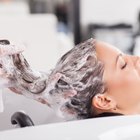
Joico K-Pak Shampoo Ingredients

How to Moisturize Dry Hair Caused by ...

Benefits of Soybean Oil for Hair

Problems With Dr. Miracle's Damaged ...

Chi Silk Infusion Ingredients
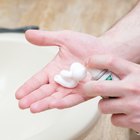
How to Shampoo With Cetaphil
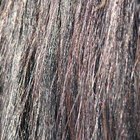
How to Wash a Glued-In Hair Weave
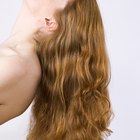
How to Make a Homemade Water-Based Hair ...

How to Keep Extensions From Falling Out

Removal of Buildup in Dreadlocks
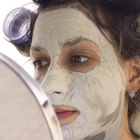
The Effects of Perm Lotion on Hair ...
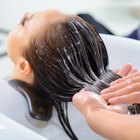
Ingredients of Herbal Essences Shampoo
References
Writer Bio
Fred Decker is a trained chef and prolific freelance writer. In previous careers, he sold insurance and mutual funds, and was a longtime retailer. He was educated at Memorial University of Newfoundland and the Northern Alberta Institute of Technology. His articles have appeared on numerous home and garden sites including GoneOutdoors, TheNest and eHow.